Nilsson – Son Of Schmilsson
(RCA Records 1972 SF8297)
UK Pressing
Gatefold Sleeve in Excellent+ condition
– some wear to edges/corners & some rubbing around edges
Poster/Lyric Book in Nr MINT condition
Inner Sleeve in Nr MINT condition
Vinyl in Nr MINT condition
(there are some light surface marks visible on the vinyl when held up to the light but they don’t affect the sound quality)
Harry Edward Nilsson III (June 15, 1941 – January 15, 1994), usually credited as Nilsson, was an American singer-songwriter who achieved the peak of his commercial success in the early 1970s. His work is characterized by pioneering vocal overdub experiments, returns to the Great American Songbook, and fusions of Caribbean sounds. A tenor with a three-and-a-half octave range, Nilsson was one of the few major pop-rock recording artists of his era to achieve significant commercial success without ever performing major public concerts or undertaking regular tours. The craft of his songs and the defiant attitude he projected remains a touchstone for later generations of indie rock musicians.
Born in Brooklyn, Nilsson moved to Los Angeles as a teenager to escape his family’s poor financial situation. While working as a computer programmer at a bank, he grew interested in musical composition and close-harmony singing, and was successful in having some of his songs recorded by various artists such as the Monkees. In 1967, he debuted on RCA Victor with the LP Pandemonium Shadow Show, followed with a variety of releases that include a collaboration with Randy Newman (Nilsson Sings Newman, 1970) and the original children’s story The Point! (1971). His most commercially successful albums, Nilsson Schmilsson (1971) and Son of Schmilsson (1972), bore the international top 10 singles “Without You” (1971) and “Coconut” (1972). His other top 10 hit, “Everybody’s Talkin'” (1968), was the theme song of the 1969 film Midnight Cowboy, that year’s Academy Award Best Picture. A version of Nilsson’s “One”, released by Three Dog Night in 1969, also reached the U.S. top 10.
During a 1968 press conference, the Beatles were asked what their favorite American group was and answered “Nilsson”. He soon formed close friendships with the band’s John Lennon and Ringo Starr. In the 1970s, Nilsson and Lennon were members of the Hollywood Vampires drinking club, embroiling themselves in a number of widely publicized, alcohol-fueled incidents. At the same time, they produced one collaborative album, Pussy Cats (1974). After 1977, Nilsson left RCA, and his record output diminished. In response to Lennon’s 1980 death by shooting, he took a hiatus from the music industry to campaign for gun control. For the rest of his life, he recorded only sporadically.
Nilsson was voted No. 62 in Rolling Stone‘s 2015 list of the “100 Greatest Songwriters of All Time”, where he was described as “a pioneer of the Los Angeles studio sound, a crucial bridge between the baroque psychedelic pop of the late Sixties and the more personal singer-songwriter era of the Seventies”. The RIAA certified Nilsson Schmilsson and Son of Schmilsson as gold records, indicating over 500,000 units sold each. His honors include Grammy Awards for two of his recordings; Best Contemporary Vocal Performance, Male in 1970 for “Everybody’s Talkin'” and Best Pop Vocal Performance, Male in 1973 for “Without You”. In 1994, Nilsson died of a heart attack while in the midst of recording new material for a since-unreleased comeback album.
Son of Schmilsson is the eighth album by American singer Harry Nilsson. Nilsson was being pressured to produce a follow-up album similar to his 1971 breakthrough, Nilsson Schmilsson, but instead, he created a more eccentric work. The album was produced by Richard Perry and includes musical contributions from former Beatles Ringo Starr and George Harrison. Other musicians on the recording include Nicky Hopkins, Klaus Voormann, Bobby Keys and Peter Frampton. The album includes the US hit “Spaceman”.
Most of the sessions were extensively filmed, at the request of Nilsson. The footage was to be used for a planned documentary, titled Did Somebody Drop His Mouse?, but the film was never released.
The album cover for Son of Schmilsson features a photo of Nilsson taken at Harrison’s home, Friar Park.
Track listing
All tracks written by Harry Nilsson except where noted.
- Side one (LP)
- “Take 54” – 4:22
- “Remember (Christmas)”– 4:07
- “Joy” – 3:42
- “Turn on Your Radio” – 2:42
- “You’re Breakin’ My Heart” – 3:10
- Side two (LP)
- “Spaceman” – 3:33
- “The Lottery Song” – 2:24
- “At My Front Door” (Ewart B. Abner, John C. Moore) – 2:46
- “Ambush” – 5:35
- “I’d Rather Be Dead” (Nilsson, Richard Perry) – 3:20
- “The Most Beautiful World in the World” – 3:33
Personnel
- Harry Nilsson – vocals, electric piano (tracks 1, 5, 6, 9), acoustic guitar (4)
- Nicky Hopkins – piano (tracks 1–8, 11)
- Klaus Voormann – bass (tracks 1, 3–6, 8, 11), saxophone (1, 5), electric guitar (7)
- Ringo Starr (credited as Richie Snare) – drums (tracks 1, 6, 8, 9, 11)[10]
- Peter Frampton – electric guitar (tracks 3–6, 8, 9), acoustic guitar (7)
- Chris Spedding – bouzouki (track 2), electric guitar (6, 8, 9), acoustic guitar (7)
- Additional musicians
- Milt Holland – percussion (tracks 1, 7)
- Jim Price – trumpet (tracks 1, 5, 9), horn arrangements (9)
- Bobby Keys – trumpet (tracks 1, 5, 9), tenor saxophone (8, 9), trombone (9)
- Lowell George – guitar (track 1)
- Del Newman – string arrangements (track 2, 11)
- Pop Arts String Quartet – strings (track 2)
- John Uribe – acoustic guitar (tracks 3, 7), electric guitar (track 6, 9)
- Red Rhodes – pedal steel guitar (track 3)
- Ray Cooper – percussion (tracks 3, 7, 11), congas (8), tambourine (9)
- Kirby Johnson – horn arrangements (tracks 4, 11)
- Richard Mackey – tuben/French horn (track 4)
- Vincent DeRosa – tuben/French horn (track 4)
- David Duke – tuben/French horn (track 4)
- George Harrison – slide guitar (track 5)
- Barry Morgan – drums (track 5)
- Paul Buckmaster – orchestral arrangement (track 6)
- Richard Perry – percussion (tracks 6, 11), arrangements (11)
- Senior Citizens of the Stepney & Pinner Choir Club No. 6, London, England – choir (track 10)
- The Henry Krein Quartet with Klaus Voormann – rhythm section (track 10)
- Henry Krein – accordion (track 10)
- Paul Keogh – guitar (track 11)
- Les Thatcher – guitar (track 11)


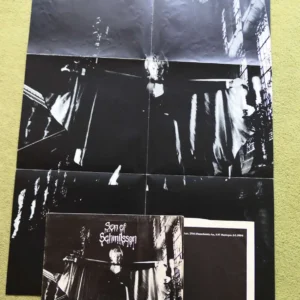
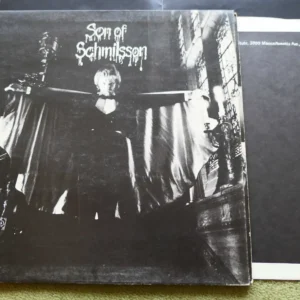
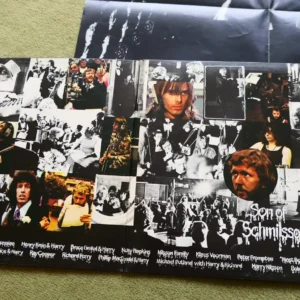
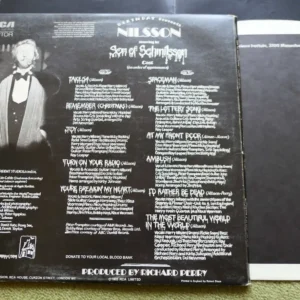
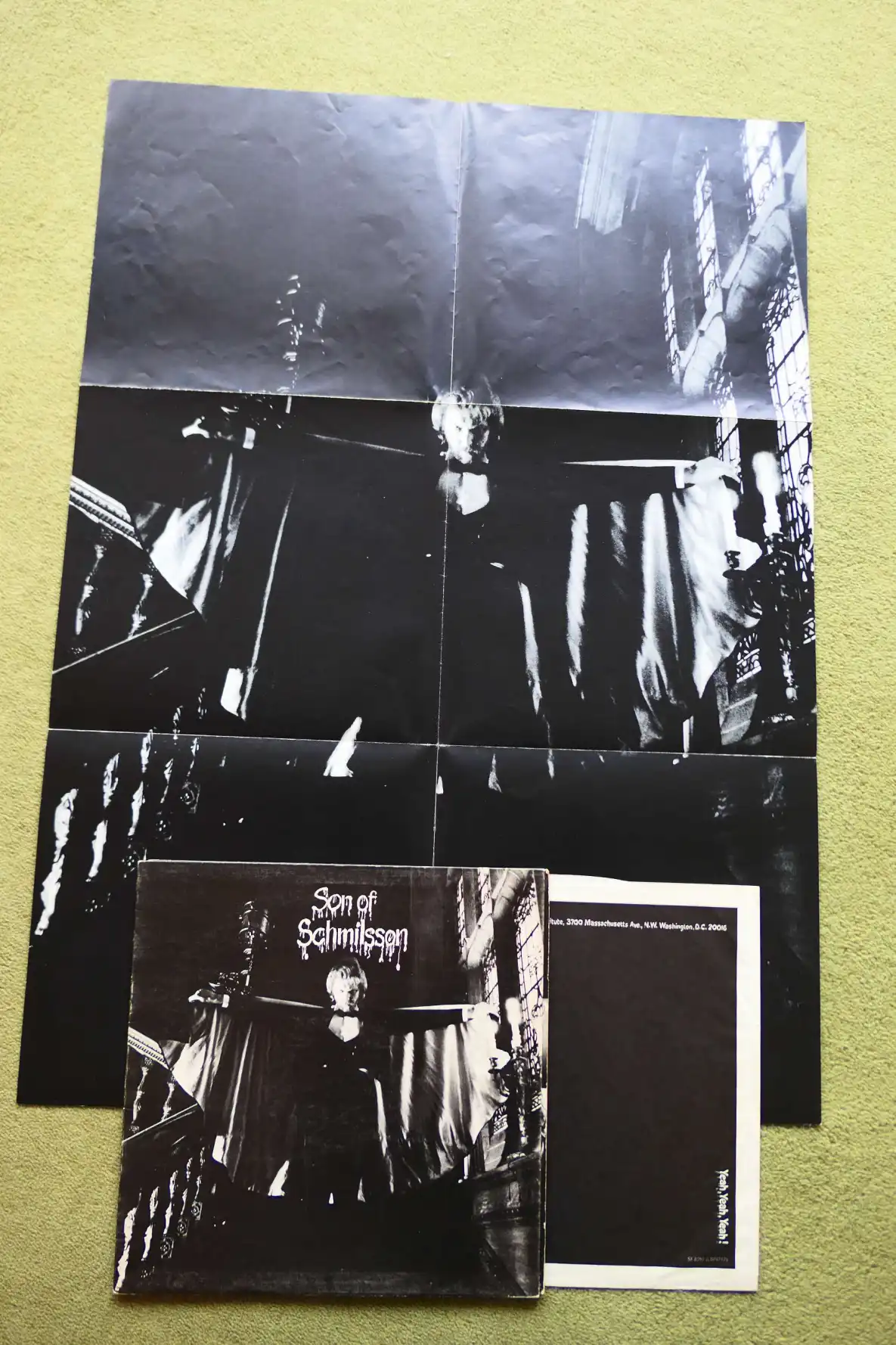
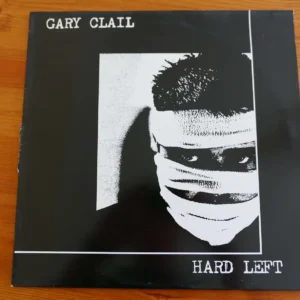

Reviews
There are no reviews yet.